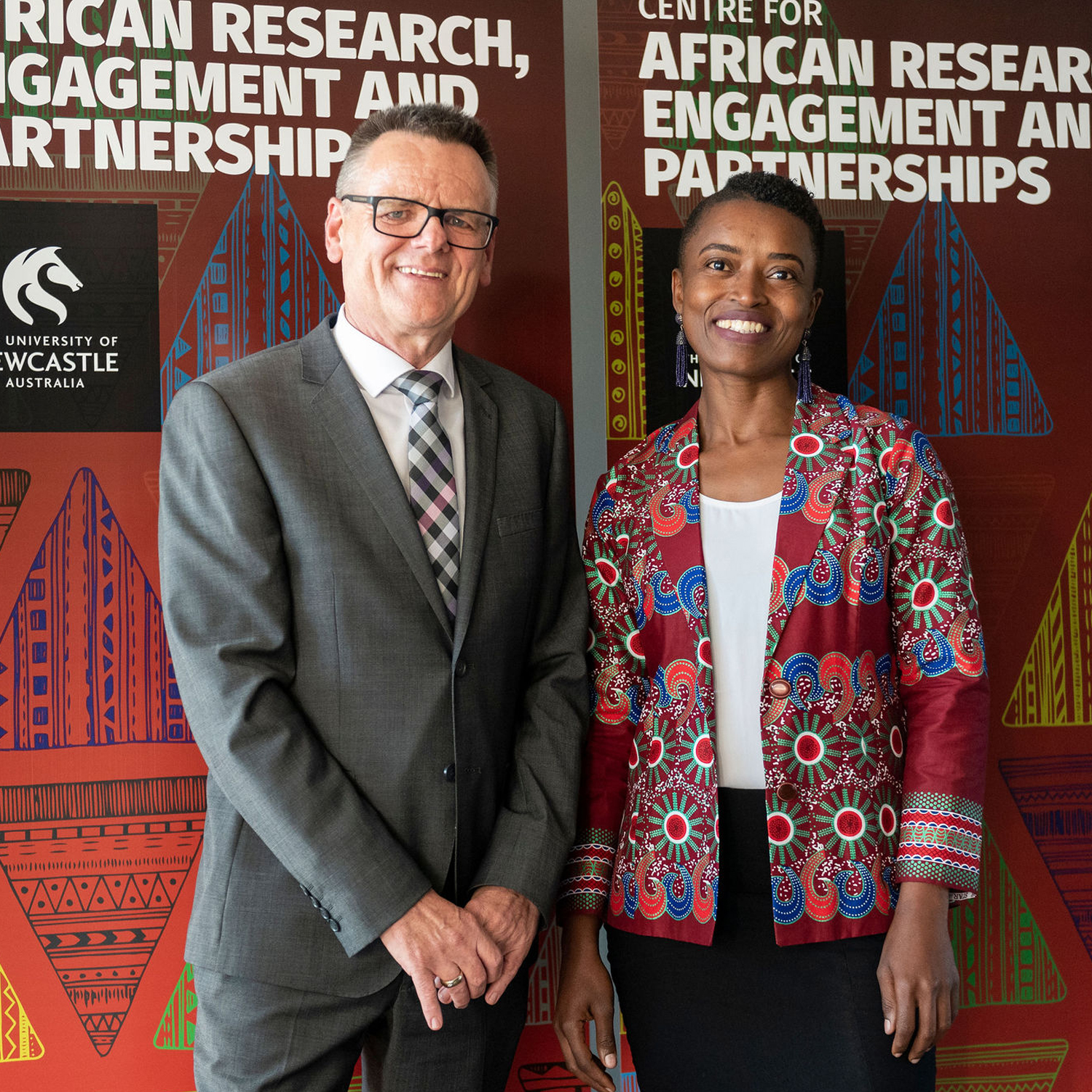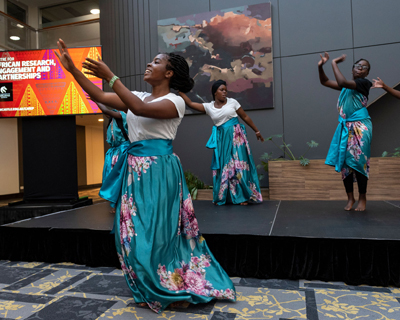Boundless opportunities on the African horizon
A new centre that will drive Australia-Africa education, research and innovation with the hope of improving life in both continents has been launched by the University of Newcastle.
The Centre for Africa Research, Engagement and Partnerships (CARE-P) will provide a University strategy for Africa to support high-quality two-way student and staff mobility research and education projects and facilitate productive collaborations with partners in Africa.
Demographically, Africa’s population lends itself to significant opportunities for extensive two-way partnerships for Australian universities. Currently, 50% of Africa’s population is under 20 years old, and 200 million students are eligible for tertiary education. By 2050, that number will reach 800 million.
The Australia Africa Universities Network engages with Australian universities in Africa and will be a key partner with CARE-P, helping deliver its strategic objectives.
CARE-P Director Dr Chris Kewley said the Centre's establishment recognises the University of Newcastle’s strengths in engagement with the important and diverse continent of Africa and its people.
“I’m excited by the opportunities CARE-P will open up; driving innovative and ethical collaborations, while strengthening wider Australia-Africa relations,” Dr Kewley said.
Dr Kewley said CARE-P will connect researchers and academics through institutional partnerships to address challenges facing both continents.
“Much of the research we do at the University of Newcastle has potential for application in Africa, and vice versa. Research addressing sustainable development challenges and responsibilities, like climate change, as well as land regeneration after mining and water conservation and wastage, are common areas of focus,” he said.
The launch, which took place at the University’s Callaghan campus on Wednesday (27 November), welcomed diplomatic representatives from Uganda, Ethiopia, Ghana and Kenya, as well as the Department of Foreign Affairs and Trade (DFAT). Building such relationships will enable the University to play a leading role in further developing Australia-Africa research and education partnerships, and draw upon the knowledge and expertise of the growing Australian-African communities.

Dr Elsa Licumba, an Associate Lecturer from the University’s Newcastle Business School, launched her book Freedom to Belong: From Mozambique to Australia at the event.
“I applaud the launch of the Centre, and look forward to seeing initiatives between CARE-P and local African communities in promoting cultural awareness, as well as the research opportunities and academic exchanges that will give visibility and a voice for Africa, and its talented people.”
University of Newcastle student Tilahun Mengistu settled in Australia a decade ago from Ethiopia, and holds several leadership positions in the local African community, including Public Officer for the African Community Council in Newcastle. Mr Mengistu said he was thrilled to accept a position on CARE-P’s Executive Leadership Group, and looks forward to addressing some of the challenges faced by African students settling in Australia.
“The first few months were difficult, leaving everything behind and being in a different country with different laws, different education and health systems, different languages and different cultural expectations,” Mr Mengistu said.
“The Centre will offer help through that period of adjustment, provide ongoing support to students, making sure they have familiarised themselves with the University.”
Mr Mengistu said another area of focus for CARE-P was to enable students and academics to continue working in their fields upon returning to Africa.
“There are very smart people who could be applying their knowledge in Africa, if they were offered attractive opportunities. Unfortunately, many graduates and academics are less likely to want to return home without that recognition or support,” he said.
Dr Kewley echoes Mr Mengistu’s sentiment, and notes it as one of the Centre’s core priorities.
“I see the team at CARE-P as being a vital instrument in facilitating an environment in Africa where expertise is recognised and rewarded, and students and academics are valued and welcomed back to their home countries with open arms,” Dr Kewley said.
Find out more about CARE-P’s goals, people, and partner institutions.
Related news
- Shanae’s passion for caring delivers her dream to work in health
- Food and nutrition degree serves Keren a rewarding career
- Kicking goals on and off the field, Joeli proves you can do it all
- Proving age is just a number, Arlyn wants to inspire more women in their 50s to pursue education
- Sky’s the limit for graduates on the Central Coast
The University of Newcastle acknowledges the traditional custodians of the lands within our footprint areas: Awabakal, Darkinjung, Biripai, Worimi, Wonnarua, and Eora Nations. We also pay respect to the wisdom of our Elders past and present.